
The Holy Week in many, if not all, Catholic nations culminates on Easter Sunday, the day devout Catholics believe that Jesus Christ has risen from the dead and descended into heaven. Catholics draw their faith from Christ’s selfless act and believe that Christ’s supernatural resurrection is proof that He is the living Son of God.
Camella, one of the premier real estate developers in the Philippines, recently hosted an Easter Funday event for its homeowners and their families. The event was a huge success and provided a day full of fun, activities, and memories to cherish.
One of the most exciting activities during the event was the Easter Egg Hunt, which both kids and kids at heart enjoyed. Participants had a great time searching for the Easter eggs, with one lucky winner finding the special egg with the Camella logo and receiving a special prize.






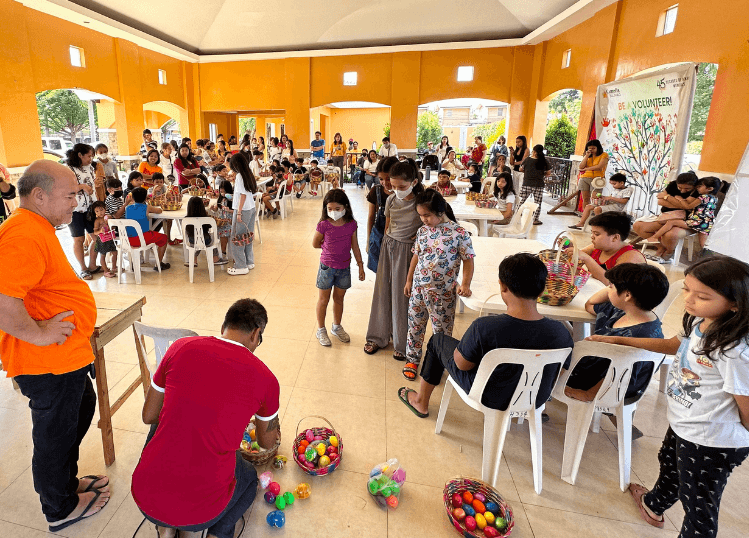


Another popular activity was the Easter Egg Painting, where children got to express their creativity and show off their artistic skills. The parents also joined the fun and helped their kids paint Easter eggs that turned out brightly colored and unique.
For those who wanted to take a break from the activities, the Easter Goodie booths provided a great opportunity to indulge in some shopping. These booths offered a variety of goodies and trinkets that catered to shoppers of all ages.
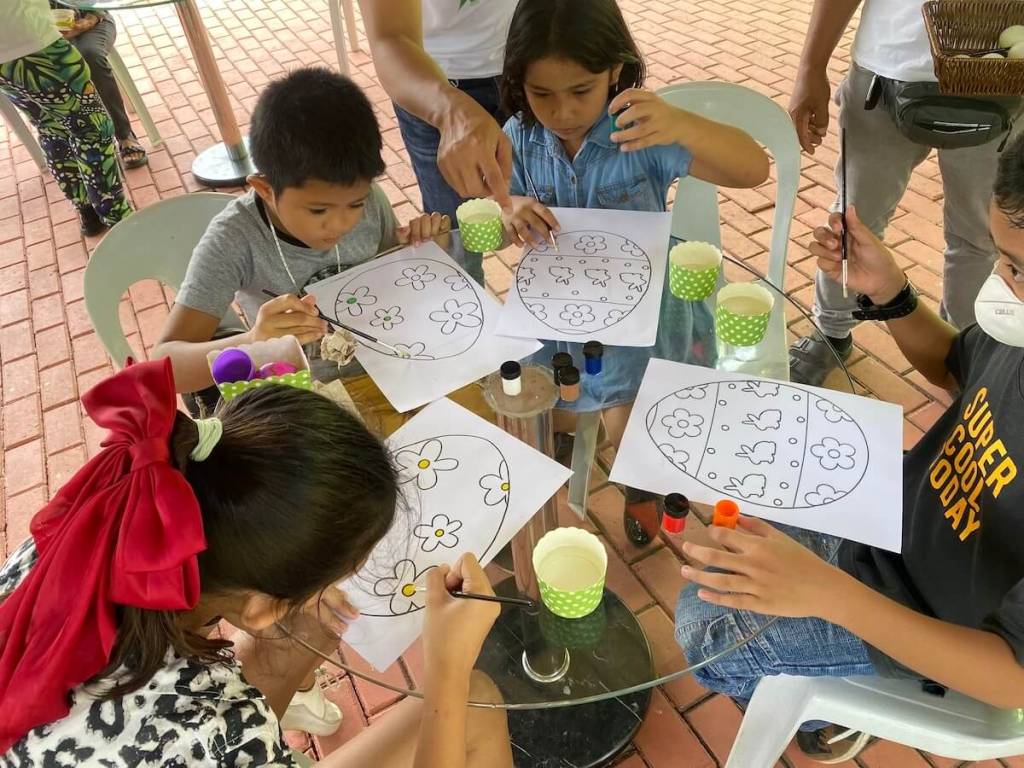






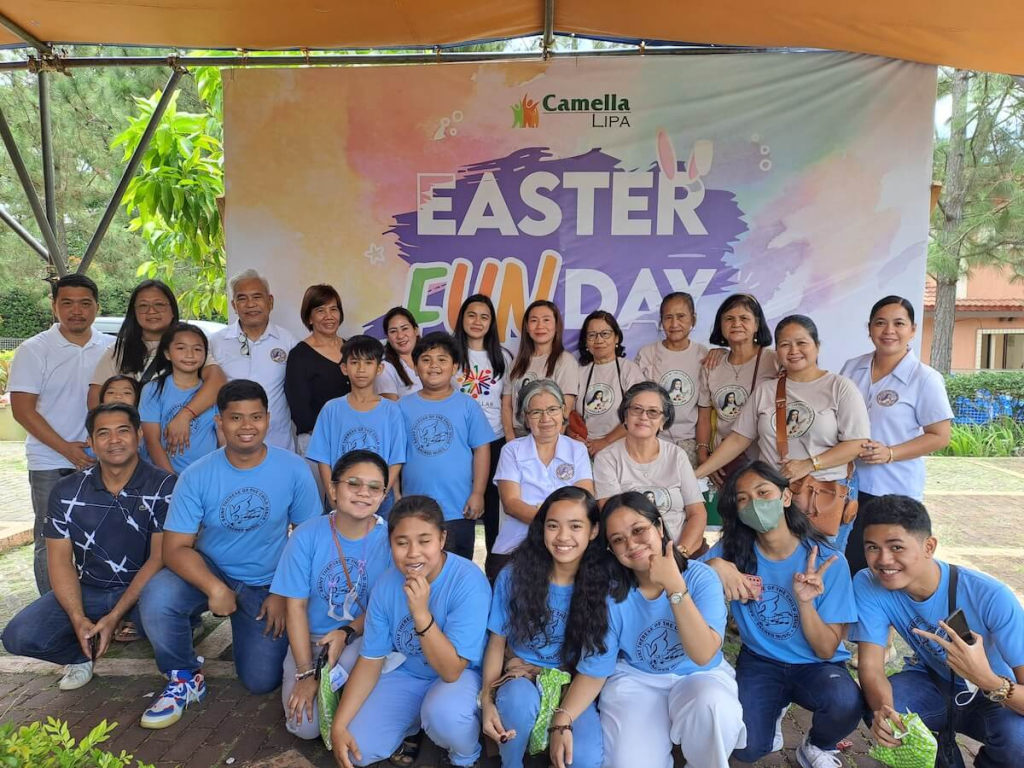

Aside from the activities, the Easter Funday event was also an excellent opportunity for Camella homeowners to socialize and nourish their community ties. The event helped create a friendly and welcoming atmosphere, which is essential for happy neighborhoods.
Camella Easter FUNDay Event
Overall, the Easter Funday event was something to remember the season by. It’s no wonder why Camella is one of the top real estate developers in the country that puts to fore their homeowners delight. Camella’s commitment to community-building and creating memorable experiences for its homeowners continue to set the standard for other developers in the Philippines. We can’t wait to see what other exciting events Camella has in store for us in the coming months.

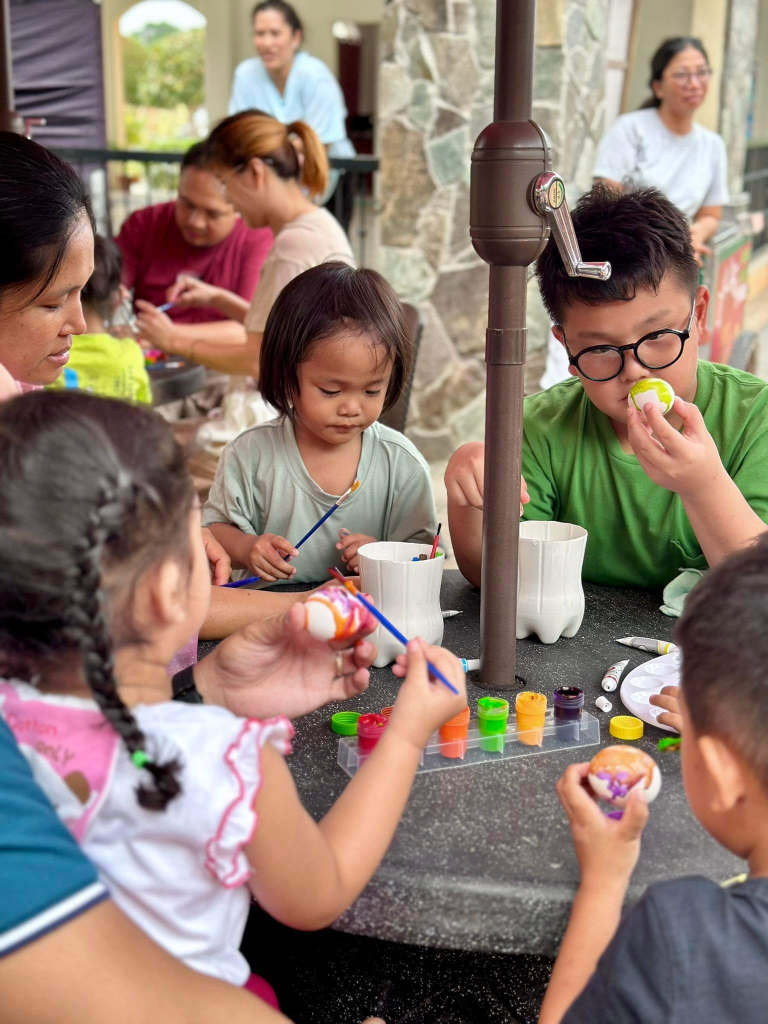



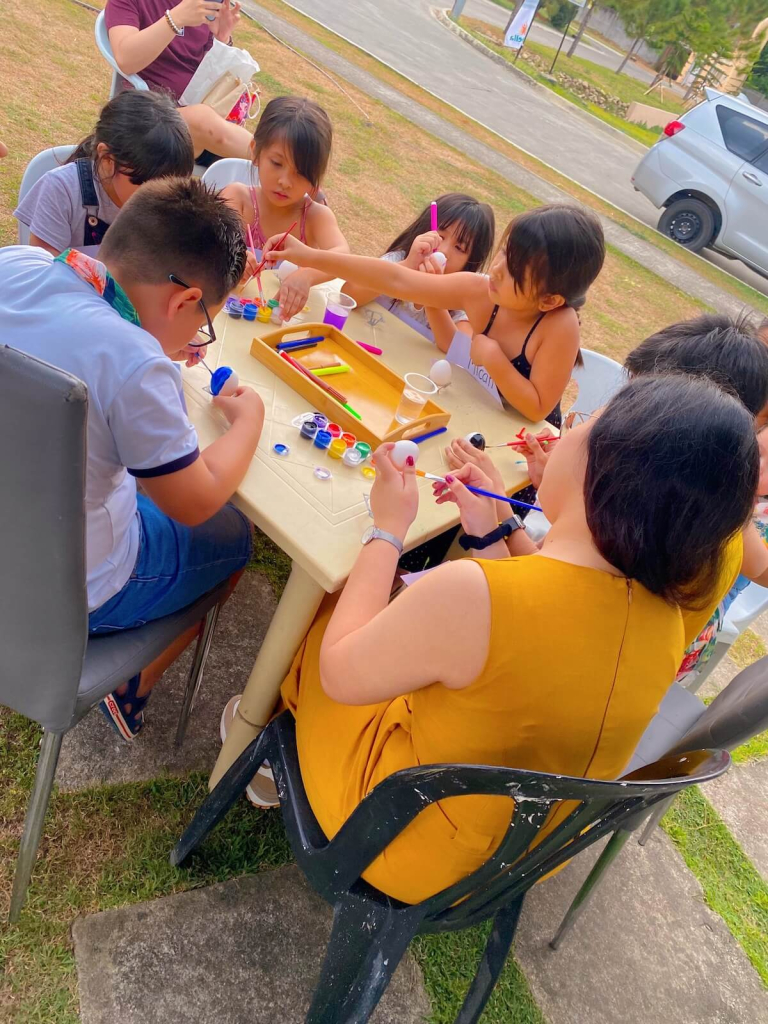


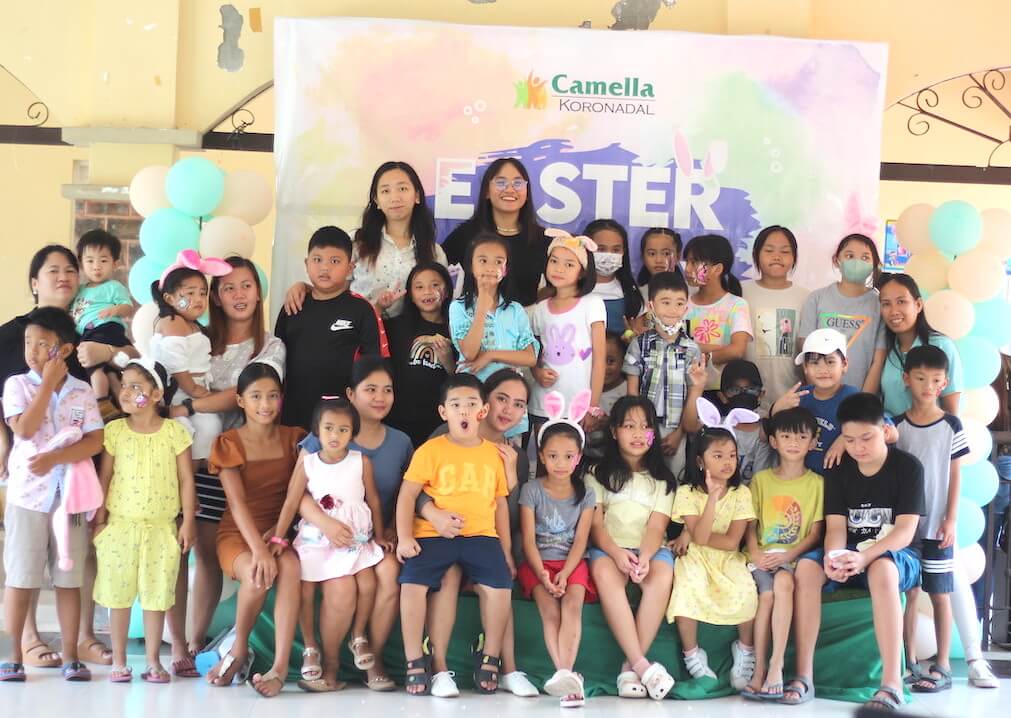

The History and Significance of Easter Egg Hunting
Easter Sunday Celebration in the Philippines
Easter Sunday, popularly known in the Philippines as the “Pista ng Pagkabuhay,” is celebrated in many different ways. Among them is called “Salubong,” two processions that showcase images of the Virgin Mary’s grief and sorrow and Christ’s resurrection.
Simultaneously happening in separate locations, the processions eventually converge at a designated point, usually within the grounds of a chosen local parish. In essence, the Salubong ceremony is a re-enactment of Christ’s reunion with his Mother Mary.
The Easter Egg Hunting activity is one of the most popular ways to celebrate Easter Sunday in the country and around the world. Be it for religious purposes or as a way to simply commemorate one of the most important days of the Lenten season.
But what of the brightly colored Easter Eggs, the inimitable Easter Hare, and the traditional Easter Egg Hunting activity? This article delves into its history and importance.
Easter Eggs : Where did it originate from?
There are numerous accounts in history that tell of the use of the eggs and its association to Easter. The Easter season is a significant celebration in the Christian calendar, with its date varying each year according to the lunar cycle. Continue reading to find out more.
Long before the Catholic Church was founded, the practice of using eggs for celebratory purposes is believed to already be a custom in Africa – proof of which is the discovery of 600,000-year old decorated eggs in that country. Research shows that early civilizations in Egypt and Mesopotamia use eggs to symbolize death and being reborn.
History of Easter Eggs
In ancient Greek, Mesopotamia means the “land between two rivers” referring to the land between the rivers Euphrates and Tigris. At present, the region is now majority of Iraq, Eastern Syria, and southeastern Turkey.
Many historians believe that the custom of using eggs in celebrating Easter originated from the Persian and Mesopotamian cultures. According to historical accounts, Easter eggs were dyed red by early Christians to represent the blood of Christ shed during the crucifixion. It was in 1610 when the Christian Churches officially espoused the practice of using eggs as a symbol of Christ’s resurrection during Easter Sunday.
There are sources however, that tell of the Easter originating from the Germanic goddess Eostre, the origin of the word Easter, from the medieval time. During this period, the children would knock from one house to another, asking for eggs – before the Lenten season starts. The same eggs were embellished, then handed out as special treats just before the townsfolk begin their fasting period.
At present times, Easter eggs are no longer chicken eggs. Easter traditions or egg hunt activities use chocolates molded like eggs or at times, plastic eggs containing goodies and surprise treats. After fasting and refraining from sweets and delicacies during the Lenten season, the edible Easter eggs come in as a form of reward. Regardless of its form, the Easter date remains a beloved and anticipated part of the Holy Saturday and Easter Sunday celebrations for many families.
The Easter Egg Hunting Activity: Where did it start?
In the 16th century, the leader of Protestant reformation Martin Luther, asked the men from his church, according to the Julian calendar to conceal eggs for children to look for. Thus began the culture of concealing and finding eggs.
Whereas the Easter bunny is another story to tell.
The cotton-tailed, floppy-eared cutie is one of the most recognizable character of the season yet where this bunny came from is a bit of a mystery. The Easter Hare is believed to carry Easter baskets brimming with Easter candies and eggs filled with goodies ready to give to children all over the world.
Historians believe that the early immigrants from Germany who had a tradition involving an egg-laying rabbit called “Osterhase” brought the story with them to Pennsylvania in the 1700’s. The immigrant children prepared small nests for the rabbit to leave its radiantly painted eggs. U.S. caught on the custom and the belief of an Easter bunny delivering chocolates and other goodies to kids. So, the Easter bunny is pretty much a Christian faith folklore. It has nothing to do with Easter and Christ’s resurrection, and has no reference in the Bible in any way.
Easter Egg Hunting Activity Around the World
Easter Egg Hunting is not just popular in the Philippines. According to stories, Queen Victoria of England was very fond of the egg hunts as a little child, so much so that she recorded her experiences in her journal. One of the entries in her journal, dating back in 1833 read “Mama did some pretty painted and ornamented eggs and we looked for them.”
Queen Victoria and King Albert wanted to share this delightful experience with their children and continued the tradition in the palace. During Lent, King Albert would hide colored eggs in small baskets and spread them around the palace grounds every Maundy Thursday.
The first recorded event of an Easter egg hunt in the U.S. was in 1878 when President Rutherford B. Hayes arranged and held the first-ever White House Easter Egg Roll, a race where children pushed decorated eggs across the White House lawn.
Why is Easter Celebrated?
Easter today is considered one of the important holidays in the Catholic community. But before we begin to lose sight of the true meaning of Easter, let’s all remember. Easter serves to commemorate the fulfillment of the prophecy in the Old Testament. A prophecy that tells of God’s plan of saving humankind from their sins. Easter symbolizes hope in the promise of salvation for everyone through Jesus Christ himself. More importantly, it reminds us that Jesus Christ is the King and Lord of the earth and beyond.
In the Christian world, Easter is considered the next important season after Christmas. Some Christian devotees and scholars even believe that the celebration of Easter is more significant than Christmas because it is our redemption from sins.

Check out our Condo for Sale Properties
Discover our condo for sale properties in the Philippines


